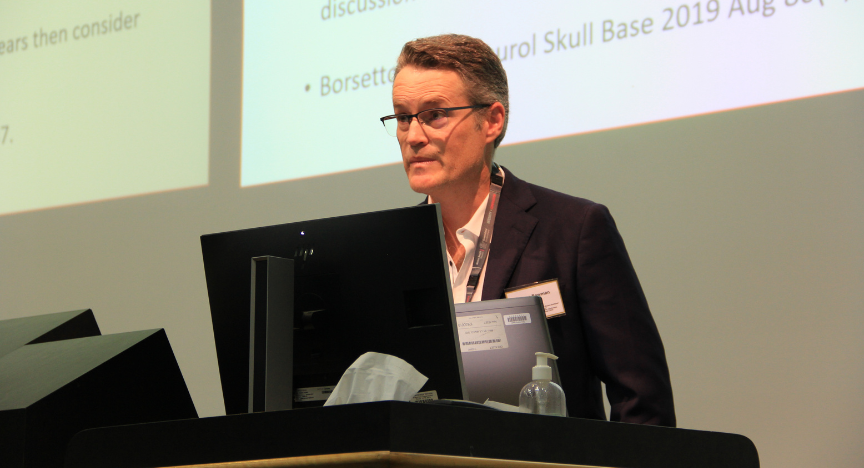
Princess Alexandra Hospital hosted the ninth David Brown-Rothwell Memorial, Queensland Acoustic Neuroma Conference this month welcoming 81 clinicians and patients from across Australia in a joint forum for the exchange of ideas, knowledge and trends in the treatment of acoustic neuroma.
The conference celebrates the many years of innovation and ongoing pursuit of excellence to improve the quality of life for people affected by this complex condition.
It affords patients the valuable opportunity to better understand how acoustic neuroma and other skull base tumours can be managed, and therefore empower them to actively participate in the management of their condition.
The Queensland Skull Base multidisciplinary team showcased best practice management of acoustic neuroma and other skull base tumours and benefited from the inclusion of virtual attendance.
Commencing with a tour of the Gamma Knife® facility, the conference included presentations on surgical and non-surgical approaches management of acoustic neuroma, targeted discussions around quality of life and conservational treatment measures. A highlight was a patient’s journey during treatment and the valued perspectives from the Australia Acoustic Neuroma Association.
The Queensland Skull Base Unit is well known in Australia as a centre of excellence in patient care and education and has developed an international reputation. The unit is a unified team of surgeons, physicians, radiation oncologists, radiologists and allied health specialists from PAH, Royal Brisbane and Women’s Hospital, and the Mater Private Hospital.
The Queensland Acoustic Neuroma Conference is a fitting memorial to the late David Brown-Rothwell who was a former Neuro-audiologist and visionary for a combined clinician/patient conference. He devoted a large part of his professional career to the care of patients with acoustic neuromas and recognised the need for patients to be informed about their own condition and the choices that they have available to them.